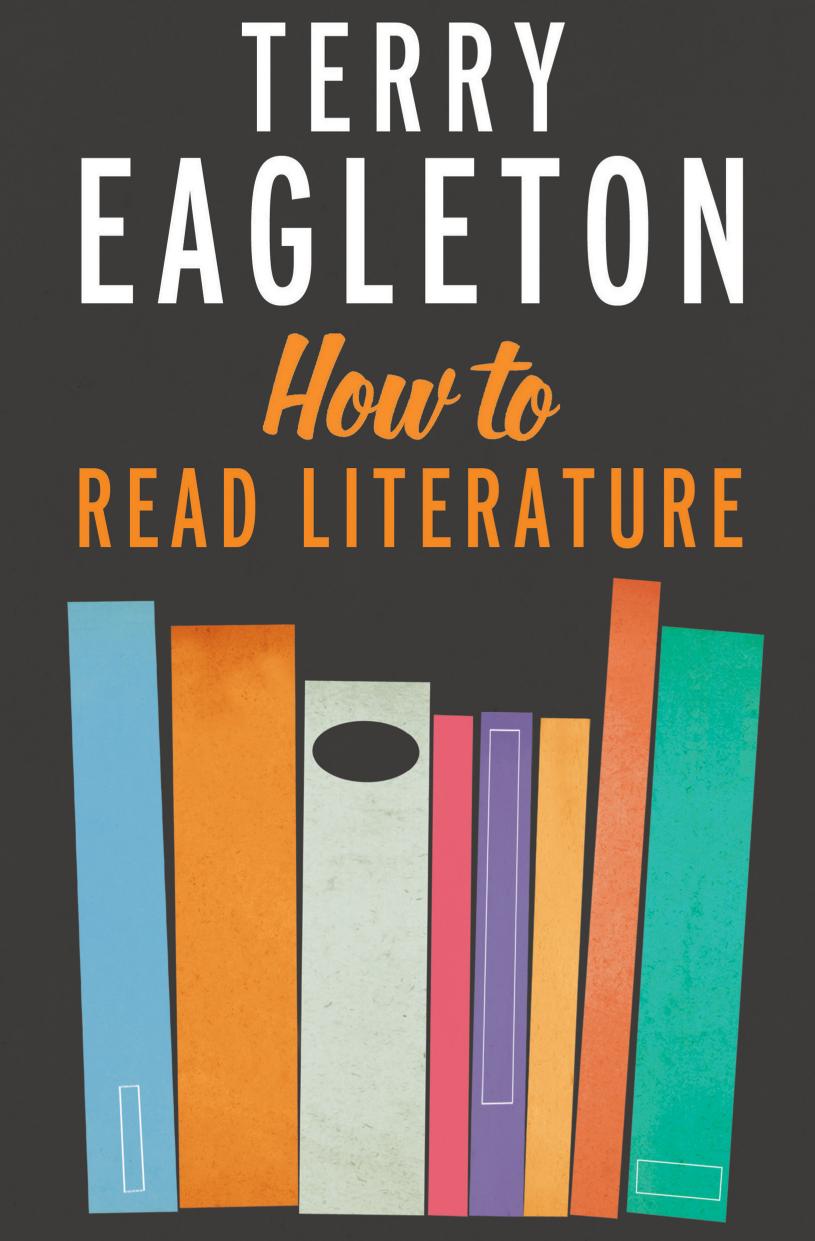How to Read Literature by Terry Eagleton

Author:Terry Eagleton
Language: eng
Format: epub, azw3, pdf
ISBN: 978-0-300-19096-0
Publisher: Yale University Press
CHAPTER 4
Interpretation
One of the things we mean by calling a piece of writing ‘literary’ is that it is not tied to a specific context. It is true that all literary works arise from particular conditions. Jane Austen's novels spring from the world of the English landed gentry of the eighteenth and early nineteenth century, while Paradise Lost has as its backdrop the English Civil War and its aftermath. Yet though these works emerge from such contexts, their meaning is not confined to them. Consider the difference between a poem and a manual for assembling a table lamp. The manual makes sense only in a specific, practical situation. Unless we are really starved for inspiration, we do not generally turn to it in order to reflect on the mystery of birth or the frailty of humankind. A poem, by contrast, can still be meaningful outside its original context, and may alter its meaning as it moves from one place or time to another. Like a baby, it is detached from its author as soon as it enters the world. All literary works are orphaned at birth. Rather as our parents do not continue to govern our lives as we grow up, so the poet cannot determine the situations in which his or her work will be read, or what sense we are likely to make of it.
What we call works of literature differ in this way from roadsigns and bus tickets. They are peculiarly ‘portable’, able to be carried from one location to another, which is true of bus tickets only for those intent on defrauding the bus company. They are less dependent for their meaning on the circumstances from which they arose. Rather, they are inherently open ended, which is one reason why they can be subject to a whole range of interpretations. It is also one reason why we tend to pay closer attention to their language than we do with bus tickets. We do not take their language primarily as practical. Instead, we assume that it is intended to have some value in itself.
This is not so true of everyday language. A panic-stricken shout of ‘Man overboard!’ is rarely ambiguous. We do not normally treat it as a delectable piece of wordplay. If we hear this cry while on board ship, we are unlikely to linger over the way the vowel-sound of ‘board’ rings a subtle change on the vowel-sound of ‘Over’, or note the fact that the stresses of the shout fall on the first and last syllables. Nor would we pause to read some symbolic meaning into it. We do not take the word ‘Man’ to signify humanity as such, or the whole phrase as suggestive of our calamitous fall from grace. We might well do all this if the man overboard in question is our mortal enemy, aware that by the time we were through with our analysis he would be food for the fishes. Otherwise, however, we are unlikely to scratch our heads over what on earth these words could mean.
Download
How to Read Literature by Terry Eagleton.azw3
How to Read Literature by Terry Eagleton.pdf
This site does not store any files on its server. We only index and link to content provided by other sites. Please contact the content providers to delete copyright contents if any and email us, we'll remove relevant links or contents immediately.
| Booksellers & Bookselling | General |
| History of Books |
4 3 2 1: A Novel by Paul Auster(11047)
The handmaid's tale by Margaret Atwood(6852)
Giovanni's Room by James Baldwin(5877)
Big Magic: Creative Living Beyond Fear by Elizabeth Gilbert(4723)
Asking the Right Questions: A Guide to Critical Thinking by M. Neil Browne & Stuart M. Keeley(4574)
On Writing A Memoir of the Craft by Stephen King(4213)
Ego Is the Enemy by Ryan Holiday(3991)
Ken Follett - World without end by Ken Follett(3972)
The Body: A Guide for Occupants by Bill Bryson(3800)
Bluets by Maggie Nelson(3709)
Adulting by Kelly Williams Brown(3669)
Guilty Pleasures by Laurell K Hamilton(3586)
Eat That Frog! by Brian Tracy(3514)
White Noise - A Novel by Don DeLillo(3434)
The Poetry of Pablo Neruda by Pablo Neruda(3366)
Alive: The Story of the Andes Survivors by Piers Paul Read(3310)
The Bookshop by Penelope Fitzgerald(3225)
The Book of Joy by Dalai Lama(3217)
Fingerprints of the Gods by Graham Hancock(3212)
